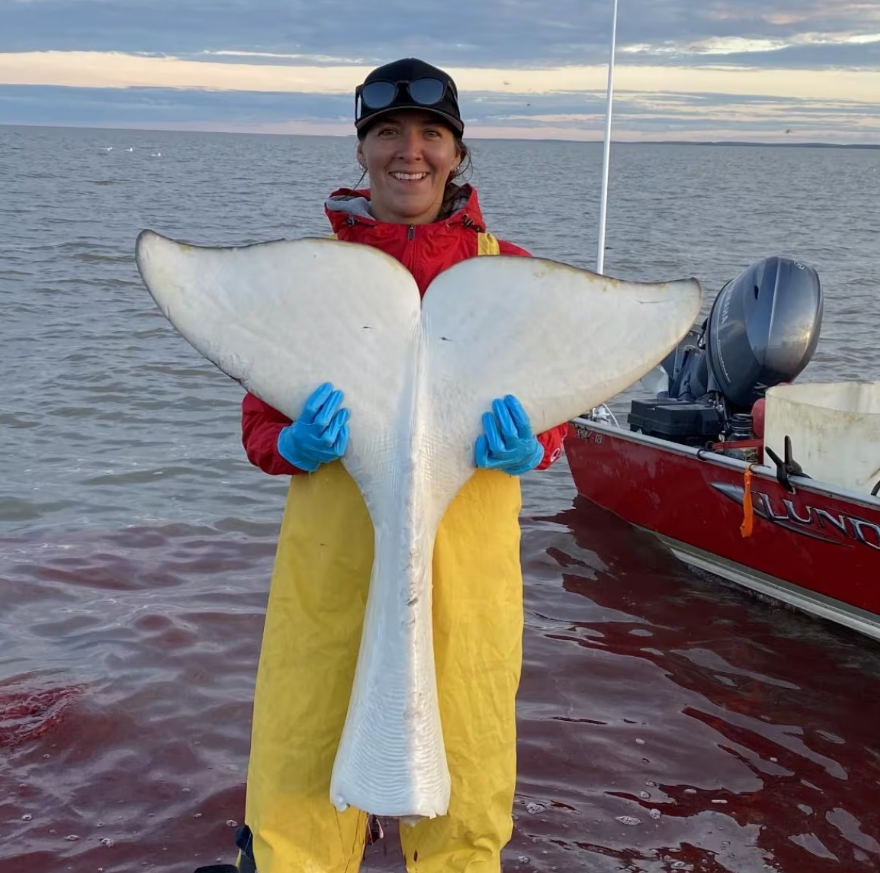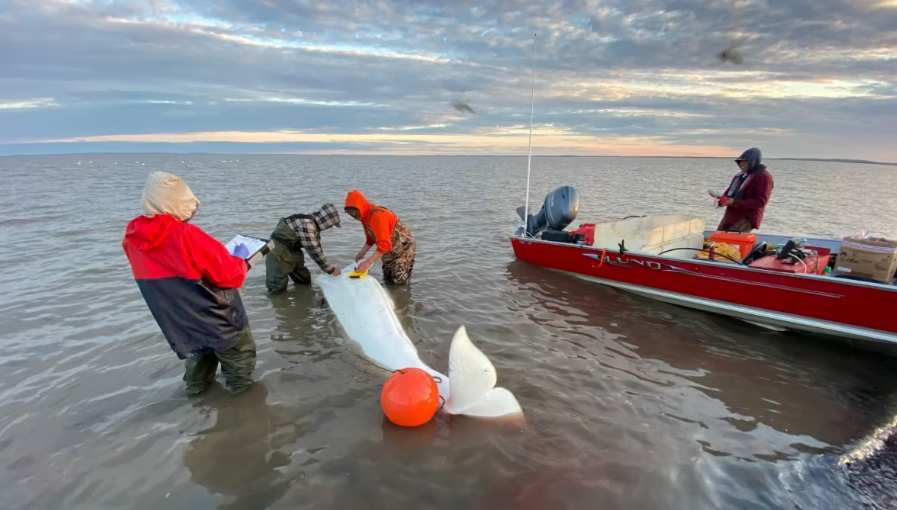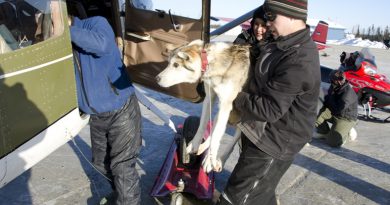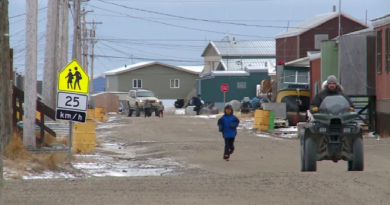‘I got to do this’: Tuktoyaktuk, N.W.T., women harvest their first belugas

Meeka Steen wasn’t going to let a little seasickness stop her.
The Tuktoyaktuk, N.W.T., resident had a single goal in mind: harpoon her first beluga whale.
It wasn’t just the waves that made her feel unwell; her nerves were getting to her.
“My boyfriend and the team were saying, ‘Let’s just go home’ and I was like, ‘No … I got to do this,'” recalled Steen, about the recent hunting trip.
They waited hours for the waters to calm. It made both the ride and the hunt easier. Steen had tried harpooning a whale earlier that evening and missed.
“It was kind of hard to follow the wake of the whales because the water was a little bit too choppy,” she said.
The hunters’ patience paid off. They saw a few whales while boating off the coast that evening, but now they’d noticed a large wake.
“We knew that it was a big whale,” she said.
This time, Steen didn’t miss and she took home an animal measuring more than four meters long.
Steen said he wanted to tell her friend Sophie Stefure “right away.”
They’d been together when Sefure harvested her first whale last summer.

“It was just full of excitement when I got mine,” said Steen.
Stefure says there’s a lot of pressure when going on a whale hunt.
“You go all that way, you use all that gas, you know you want to make it a successful hunt,” she said. “So there’s definitely pressure behind that excitement and nervousness.”
But, she added, keeping those nerves under control in the moment is crucial to making it a successful hunt.
“You’re going to have food for the winter and you’re going to be feeding a lot of families,” she said.
Including women in tradition
After hunting the whale, Steen said they brought it to an island to cut off the muktuk and cut meat into slabs.
The community also hires whale monitors that take blood, fat and liver samples of all harvested whales.

Afterwards Steen and her group brought back all the meat to the community, and laid it out on plywood and pallets to drain overnight.
After that is when “the real work begins,” said Stefure.
Steen can attest to that — she said it took a group of them about eight hours the next day to clean, cut and prepare the muktuk and meat.
Traditionally, men were the ones to bring back whales to feed their communities. But growing up, Steen said she’d spend time with her father on the land, learning how to set traps and hunt geese, and on the water.
“He passed away in 2007, so a lot of that stopped for me,” she said. “But thankfully I’ve had someone taking me out and teaching me, and giving me these chances of continuing on learning these traditions.”
She adds that it’s “awesome” that women can also harvest for their community and “it’s something to be proud of for sure.”
Stefure’s advice is simple for anyone interested in whaling: “Do it. Take any chance you get.”
Even if you’re not pulling the trigger, she said just being part of the experience is a “good feeling.”
“And just make sure to celebrate the moment because like Meeka said, too, women hunting wasn’t always a thing.”
While their hunting is done for this season, both Steen and Stefure plan to be back out on the water next summer.
Written by Francis Tessier-Burns with files from Mark Hadlari
Related stories from around the North:
Canada: Hunters in Sanikiluaq, Nunavut, still waiting for decision on exporting polar bear hides, CBC News
Finland: Villages in western Finland concerned by jump in wolf population, Yle News
Norway: Polar bear shot dead after attacking person on Svalbard, The Independent Barents Observer
Russia: Russia plans fenced parks to confine reindeer herding in Arctic, The Independent Barents Observer
Sweden: Poachers suspected behind dwindling wolf numbers in Sweden, Radio Sweden
United States: After deadly bear attack, hikers in Anchorage, Alaska weigh risks, Alaska Public Media



